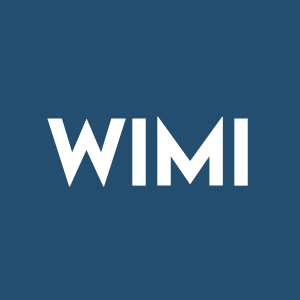WiMi Unveils New Efficient Quantum Random Access Memory Technology
Rhea-AI Summary
WiMi Hologram Cloud (NASDAQ: WIMI) has announced a breakthrough in quantum computing with its new Quantum Random Access Memory (QRAM) technology. The innovative QRAM offers constant-time data access (O(1) complexity) regardless of memory size, supporting both classical and quantum data storage.
The technology features advanced capabilities including quantum error correction, support for unknown quantum states, and a novel quantum address decoder using superconducting quantum interference devices (SQUIDs). The QRAM's dynamic storage capacity adapts to computational tasks through quantum parallelism, eliminating traditional RAM expansion bottlenecks.
This development is particularly significant for large-scale quantum computing, quantum machine learning applications, and future quantum internet infrastructure.
Positive
- None.
Negative
- Technology is still in early development phase with no commercial implementation timeline
- Requires complex superconducting quantum interference devices (SQUIDs)
- Susceptible to quantum decoherence requiring constant error correction
News Market Reaction
On the day this news was published, WIMI declined 3.12%, reflecting a moderate negative market reaction. Argus tracked a peak move of +2.9% during that session. Argus tracked a trough of -4.8% from its starting point during tracking. Our momentum scanner triggered 6 alerts that day, indicating moderate trading interest and price volatility. This price movement removed approximately $2M from the company's valuation, bringing the market cap to $55M at that time.
Data tracked by StockTitan Argus on the day of publication.
In classical computer systems, Random Access Memory (RAM) is used for efficient storage and retrieval of data. However, with the widespread application and increasing complexity of quantum computers, traditional RAM can no longer meet the storage demands of quantum computing systems. The new Quantum Random Access Memory (QRAM) is a dedicated memory designed for quantum computing systems, used for efficient storage and retrieval of data in both classical and quantum domains.
The new QRAM offers storage efficiency and capacity far beyond traditional classical RAM, enabling more efficient storage of both classical and quantum information. It adopts a fixed structural design that maximizes storage space utilization while maintaining stability, thereby increasing the overall capacity of the memory. While classical RAM requires memory modules to be expanded according to storage needs, the new QRAM technology, through quantum parallelism, allows storage capacity to dynamically adjust with the complexity of computational tasks, thus avoiding the expansion bottlenecks encountered in classical RAM.
The QRAM technology proposed by WiMi allows for access to any location in the memory with O(1) time complexity. This means that, regardless of the size of the memory, a quantum computer can efficiently access data in storage units in constant time. This feature greatly enhances the overall computational efficiency of quantum computing. In contrast to traditional RAM, where the access time increases as the number of storage units grows, QRAM achieves true constant-time access, breaking through the performance bottleneck in both computation and storage.
The new QRAM can not only store classical data but also store quantum data. While classical RAM can only handle bit data, QRAM can process quantum bit (qubit) information. It can store this data as classical information or directly store quantum states. The fusion of classical and quantum computing has become a trend for future computing, and thus, the demand for memory that can simultaneously store both types of data is particularly urgent. This QRAM technology addresses this critical need.
Another technological breakthrough of QRAM is its ability to support access to both known and unknown quantum states. Unlike classical computing, quantum computing often needs to deal with quantum states that have not yet been measured. The proposed QRAM technology can efficiently handle these quantum states and, through a well-designed architecture, ensure data storage and retrieval without destroying the quantum state superposition. This feature is especially important for computational tasks that require the quantum state to be maintained for extended periods.
WiMi's brand-new, efficient Quantum Random Access Memory (QRAM) utilizes quantum bits (qubits) as its core components. Qubits can exist in multiple superposition states simultaneously, whereas classical bits can only be in a state of 0 or 1. To fully exploit the superposition states of qubits for information storage, the design of QRAM is based on the effective storage and manipulation of quantum states. Specifically, QRAM employs a storage solution based on superconducting quantum interference devices (SQUIDs), which ensures that quantum states maintain their quantum properties during the storage process. Meanwhile, QRAM optimizes the interactions between qubits to ensure that data is not subject to quantum state collapse during storage and retrieval.
In classical RAM, the address decoder is the core module for locating storage units. Similarly, QRAM also requires an efficient quantum address decoder. In WiMi's QRAM technology, the quantum address decoder employs a new parallel address decoding method, which can quickly determine storage locations and perform data retrieval. Through the design of quantum algorithms, the address decoder can decode address information in constant time, which is one of the key technologies enabling QRAM to achieve O(1) access time.
For storing and retrieving classical and quantum data, QRAM employs different mechanisms. Classical data can be directly stored in the fixed states of qubits and retrieved by measurement. In contrast, for quantum data, non-destructive measurement techniques are used to ensure that the quantum superposition state does not collapse during the reading process. This technology uses specific quantum gate operations that allow quantum information to be read without disturbing the quantum state, ensuring the integrity of the quantum state for subsequent quantum computations.
During quantum storage, the system inevitably experiences interference from external noise, leading to quantum decoherence. To address this issue, WiMi's QRAM incorporates a quantum error correction mechanism. Using quantum error-correcting codes, QRAM can detect and correct errors that arise during the storage process in real-time. The introduction of this error-correction mechanism significantly enhances the reliability of quantum storage and ensures the integrity of quantum states.
The introduction of WiMi's new, efficient Quantum Random Access Memory (QRAM) has greatly enhanced the storage capacity and computational efficiency of quantum computing systems. In the future, as quantum computing application scenarios continue to expand, QRAM will become an indispensable key component in quantum computing systems. Large-scale quantum computing requires processing vast amounts of data, which traditional classical memory cannot meet. QRAM, with its efficient storage and retrieval capabilities, will enable quantum computers to handle large volumes of data in a short time, making it ideal for large-scale quantum computing tasks.
Additionally, quantum machine learning is an important application field of quantum computing. In the process of quantum machine learning, QRAM can be used to efficiently store and retrieve training data and model parameters, providing support for quantum algorithms and thereby accelerating the training and inference processes of quantum machine learning. The future quantum internet will require an efficient storage solution to store and transmit quantum information. QRAM technology can not only serve as memory for quantum computers but also act as a relay station in quantum networks, storing and transmitting quantum state data.
WiMi's new, efficient Quantum Random Access Memory (QRAM) technology is undoubtedly a significant technological breakthrough in the field of quantum computing. As this technology matures and is applied, the performance of quantum computers will be greatly enhanced, bringing unprecedented technological transformations and application prospects to human society.
About WiMi Hologram Cloud
WiMi Hologram Cloud, Inc. (NASDAQ:WiMi) is a holographic cloud comprehensive technical solution provider that focuses on professional areas including holographic AR automotive HUD software, 3D holographic pulse LiDAR, head-mounted light field holographic equipment, holographic semiconductor, holographic cloud software, holographic car navigation and others. Its services and holographic AR technologies include holographic AR automotive application, 3D holographic pulse LiDAR technology, holographic vision semiconductor technology, holographic software development, holographic AR advertising technology, holographic AR entertainment technology, holographic ARSDK payment, interactive holographic communication and other holographic AR technologies.
Safe Harbor Statements
This press release contains "forward-looking statements" within the Private Securities Litigation Reform Act of 1995. These forward-looking statements can be identified by terminology such as "will," "expects," "anticipates," "future," "intends," "plans," "believes," "estimates," and similar statements. Statements that are not historical facts, including statements about the Company's beliefs and expectations, are forward-looking statements. Among other things, the business outlook and quotations from management in this press release and the Company's strategic and operational plans contain forward−looking statements. The Company may also make written or oral forward−looking statements in its periodic reports to the US Securities and Exchange Commission ("SEC") on Forms 20−F and 6−K, in its annual report to shareholders, in press releases, and other written materials, and in oral statements made by its officers, directors or employees to third parties. Forward-looking statements involve inherent risks and uncertainties. Several factors could cause actual results to differ materially from those contained in any forward−looking statement, including but not limited to the following: the Company's goals and strategies; the Company's future business development, financial condition, and results of operations; the expected growth of the AR holographic industry; and the Company's expectations regarding demand for and market acceptance of its products and services.
Further information regarding these and other risks is included in the Company's annual report on Form 20-F and the current report on Form 6-K and other documents filed with the SEC. All information provided in this press release is as of the date of this press release. The Company does not undertake any obligation to update any forward-looking statement except as required under applicable laws.
![]() View original content:https://www.prnewswire.com/news-releases/wimi-unveils-new-efficient-quantum-random-access-memory-technology-302564477.html
View original content:https://www.prnewswire.com/news-releases/wimi-unveils-new-efficient-quantum-random-access-memory-technology-302564477.html
SOURCE WiMi Hologram Cloud Inc.









